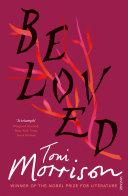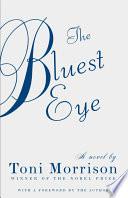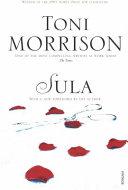Works
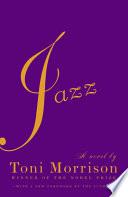
Jazz
Toni Morrison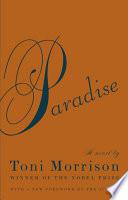
Paradise
Toni Morrison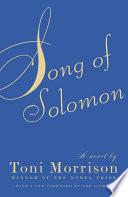
Song of Solomon
Toni Morrison
God Help the Child
Toni Morrison
A Mercy
Toni Morrison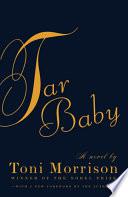
Tar Baby
Toni Morrison
Home
Toni Morrison
Love
Toni MorrisonFamous Toni Morrison Quotes
Toni Morrison Quotes about love
Toni Morrison: Trending quotes
So when I was working in kitchens, I did good work.
As quoted in the New York Times Magazine (11 September 1994).
Source: The Bluest Eye
Toni Morrison Quotes
Source: Beloved (1987), Ch. 22
Nobel Prize Lecture (1993)
“Freeing yourself was one thing; claiming ownership of that freed self was another.”
Source: Beloved (1987), Ch. 9
Context: Bit by bit, at 124 and in the Clearing, along with others, she had claimed herself. Freeing yourself was one thing; claiming ownership of that freed self was another.
Tar Baby (1981)
“Like any artist with no art form, she became dangerous.”
Source: Sula (1973)
Nobel Prize Lecture (1993)
Context: Language can never "pin down" slavery, genocide, war. Nor should it yearn for the arrogance to be able to do so. Its force, its felicity is in its reach toward the ineffable. Be it grand or slender, burrowing, blasting, or refusing to sanctify; whether it laughs out loud or is a cry without an alphabet, the choice word, the chosen silence, unmolested language surges toward knowledge, not its destruction. But who does not know of literature banned because it is interrogative; discredited because it is critical; erased because alternate? And how many are outraged by the thought of a self-ravaged tongue?
On the title of her book Love (2003), in O, The Oprah Magazine (November 2003) http://www.oprah.com/omagazine/200311/omag_200311_toni_b.jhtml
Context: It is easily the most empty cliché, the most useless word, and at the same time the most powerful human emotion — because hatred is involved in it, too. I thought if I removed the word from nearly every other place in the manuscript, it could become an earned word. If I could give the word, in my very modest way, its girth and its meaning and its terrible price and its clarity at the moment when that is all there is time for, then the title does work for me.
Nobel Prize Lecture (1993)
Context: A dead language is not only one no longer spoken or written, it is unyielding language content to admire its own paralysis. Like statist language, censored and censoring. Ruthless in its policing duties, it has no desire or purpose other than maintaining the free range of its own narcotic narcissism, its own exclusivity and dominance. However moribund, it is not without effect for it actively thwarts the intellect, stalls conscience, suppresses human potential. Unreceptive to interrogation, it cannot form or tolerate new ideas, shape other thoughts, tell another story, fill baffling silences.
Nobel Prize Lecture (1993)
Context: There is and will be rousing language to keep citizens armed and arming; slaughtered and slaughtering in the malls, courthouses, post offices, playgrounds, bedrooms and boulevards; stirring, memorializing language to mask the pity and waste of needless death. There will be more diplomatic language to countenance rape, torture, assassination. There is and will be more seductive, mutant language designed to throttle women, to pack their throats like paté-producing geese with their own unsayable, transgressive words; there will be more of the language of surveillance disguised as research; of politics and history calculated to render the suffering of millions mute; language glamorized to thrill the dissatisfied and bereft into assaulting their neighbors; arrogant pseudo-empirical language crafted to lock creative people into cages of inferiority and hopelessness.
Interview with Don Swaim (1987) http://wiredforbooks.org/tonimorrison/
Context: Anger... it's a paralyzing emotion... you can't get anything done. People sort of think it's an interesting, passionate, and igniting feeling — I don't think it's any of that — it's helpless... it's absence of control — and I need all of my skills, all of the control, all of my powers — and I need clarity, in order to write — and anger doesn't provide any of that — I have no use for it whatsoever. I can feel melancholy, and I can feel full of regret, but anger is something that is useful to the people who watch it... it's not useful to me.
Nobel Prize Lecture (1993)
Context: Tongue-suicide is not only the choice of children. It is common among the infantile heads of state and power merchants whose evacuated language leaves them with no access to what is left of their human instincts for they speak only to those who obey, or in order to force obedience. The systematic looting of language can be recognized by the tendency of its users to forgo its nuanced, complex, mid-wifery properties for menace and subjugation. Oppressive language does more than represent violence; it is violence; does more than represent the limits of knowledge; it limits knowledge. Whether it is obscuring state language or the faux-language of mindless media; whether it is the proud but calcified language of the academy or the commodity driven language of science; whether it is the malign language of law-without-ethics, or language designed for the estrangement of minorities, hiding its racist plunder in its literary cheek — it must be rejected, altered and exposed. It is the language that drinks blood, laps vulnerabilities, tucks its fascist boots under crinolines of respectability and patriotism as it moves relentlessly toward the bottom line and the bottomed-out mind. Sexist language, racist language, theistic language — all are typical of the policing languages of mastery, and cannot, do not permit new knowledge or encourage the mutual exchange of ideas.
Nobel Prize Lecture (1993)
Context: "Once upon a time there was an old woman. Blind but wise." Or was it an old man? A guru, perhaps. Or a griot soothing restless children. I have heard this story, or one exactly like it, in the lore of several cultures.
"Once upon a time there was an old woman. Blind. Wise."
In the version I know the woman is the daughter of slaves, black, American, and lives alone in a small house outside of town. Her reputation for wisdom is without peer and without question. Among her people she is both the law and its transgression. The honor she is paid and the awe in which she is held reach beyond her neighborhood to places far away; to the city where the intelligence of rural prophets is the source of much amusement.
One day the woman is visited by some young people who seem to be bent on disproving her clairvoyance and showing her up for the fraud they believe she is. Their plan is simple: they enter her house and ask the one question the answer to which rides solely on her difference from them, a difference they regard as a profound disability: her blindness. They stand before her, and one of them says, "Old woman, I hold in my hand a bird. Tell me whether it is living or dead."
She does not answer, and the question is repeated. "Is the bird I am holding living or dead?"
Still she doesn't answer. She is blind and cannot see her visitors, let alone what is in their hands. She does not know their color, gender or homeland. She only knows their motive.
The old woman's silence is so long, the young people have trouble holding their laughter.
Finally she speaks and her voice is soft but stern. "I don't know", she says. "I don't know whether the bird you are holding is dead or alive, but what I do know is that it is in your hands. It is in your hands."
“Beloved, you are my sister, you are my daughter, you are my face; you are me.”
Beloved (1987), Ch. 22
"Unspeakable Things Unspoken: The Afro-American Presence in American Literature" in Michigan Quarterly Review 28, no. 1 (Winter 1989)
Context: Beginning Beloved with numerals rather than spelled out numbers, it was my intention to give the house an identity separate from the street or even the city... Numbers here constitute an address, a thrilling enough prospect for slaves who had owned nothing, least of all an address. And although the numbers, unlike words, can have no modifiers, I give these an adjective — spiteful… A few words have to be read before it is clear that 124 refers to a house … and a few more have to be read to discover why it is spiteful, or rather the source of the spite. By then it is clear, if not at once, that something is beyond control, but is not beyond understanding since it is not beyond accommodation by both the "women" and the "children." The fully realized presence of the haunting is both a major incumbent of the narrative and sleight of hand. One of its purposes is to keep the reader preoccupied with the nature of the incredible spirit world while being supplied a controlled diet of the incredible political world. … Here I wanted the compelling confusion of being there as they (the characters) are; suddenly, without comfort or succor from the "author," with only imagination, intelligence, and necessity available for the journey. …. No compound of houses, no neighborhood, no sculpture, no paint, no time, especially no time because memory, pre-historic memory, has no time. There is just a little music, each other and the urgency of what is at stake. Which is all they had. For that work, the work of language is to get out of the way.
Nobel Prize Lecture (1993)
Context: Tongue-suicide is not only the choice of children. It is common among the infantile heads of state and power merchants whose evacuated language leaves them with no access to what is left of their human instincts for they speak only to those who obey, or in order to force obedience. The systematic looting of language can be recognized by the tendency of its users to forgo its nuanced, complex, mid-wifery properties for menace and subjugation. Oppressive language does more than represent violence; it is violence; does more than represent the limits of knowledge; it limits knowledge. Whether it is obscuring state language or the faux-language of mindless media; whether it is the proud but calcified language of the academy or the commodity driven language of science; whether it is the malign language of law-without-ethics, or language designed for the estrangement of minorities, hiding its racist plunder in its literary cheek — it must be rejected, altered and exposed. It is the language that drinks blood, laps vulnerabilities, tucks its fascist boots under crinolines of respectability and patriotism as it moves relentlessly toward the bottom line and the bottomed-out mind. Sexist language, racist language, theistic language — all are typical of the policing languages of mastery, and cannot, do not permit new knowledge or encourage the mutual exchange of ideas.
"Unspeakable Things Unspoken: The Afro-American Presence in American Literature" in Michigan Quarterly Review 28, no. 1 (Winter 1989)
Context: Beginning Beloved with numerals rather than spelled out numbers, it was my intention to give the house an identity separate from the street or even the city... Numbers here constitute an address, a thrilling enough prospect for slaves who had owned nothing, least of all an address. And although the numbers, unlike words, can have no modifiers, I give these an adjective — spiteful… A few words have to be read before it is clear that 124 refers to a house … and a few more have to be read to discover why it is spiteful, or rather the source of the spite. By then it is clear, if not at once, that something is beyond control, but is not beyond understanding since it is not beyond accommodation by both the "women" and the "children." The fully realized presence of the haunting is both a major incumbent of the narrative and sleight of hand. One of its purposes is to keep the reader preoccupied with the nature of the incredible spirit world while being supplied a controlled diet of the incredible political world. … Here I wanted the compelling confusion of being there as they (the characters) are; suddenly, without comfort or succor from the "author," with only imagination, intelligence, and necessity available for the journey. …. No compound of houses, no neighborhood, no sculpture, no paint, no time, especially no time because memory, pre-historic memory, has no time. There is just a little music, each other and the urgency of what is at stake. Which is all they had. For that work, the work of language is to get out of the way.
Burn This Book, p. 2 (2009)
Context: We all know nations that can be identified by the flight of writers from their shores. These are regimes whose fear of unmonitored writing is justified because truth is trouble. It is trouble for the warmonger, the torturer, the corporate thief, the political hack, the corrupt justice system, and for a comatose public. Unpersecuted, unjailed, unharrassed writers are trouble for the ignorant bully, the sly racist, and the predators feeding off the world’s resources. The alarm, the disquiet, writers raise is instructive because it is open and vulnerable, because if unpoliced it is threatening. Therefore the historical suppression of writers is the earliest harbinger of the steady peeling away of additional rights and liberties that will follow.
Nobel Prize Lecture (1993)
Context: A dead language is not only one no longer spoken or written, it is unyielding language content to admire its own paralysis. Like statist language, censored and censoring. Ruthless in its policing duties, it has no desire or purpose other than maintaining the free range of its own narcotic narcissism, its own exclusivity and dominance. However moribund, it is not without effect for it actively thwarts the intellect, stalls conscience, suppresses human potential. Unreceptive to interrogation, it cannot form or tolerate new ideas, shape other thoughts, tell another story, fill baffling silences.
O, The Oprah Magazine (November 2003) http://www.oprah.com/omagazine/200311/omag_200311_toni_b.jhtml
Context: The idea of a wanton woman is something I have inserted into almost all of my books. An outlaw figure who is disallowed in the community because of her imagination or activity or status — that kind of anarchic figure has always fascinated me. And the benefits they bring with them, in spite of the fact that they are either dismissed or upbraided — something about their presence is constructive in the long run.
"Unspeakable Things Unspoken: The Afro-American Presence in American Literature" in Michigan Quarterly Review 28, no. 1 (Winter 1989)
Context: Beginning Beloved with numerals rather than spelled out numbers, it was my intention to give the house an identity separate from the street or even the city... Numbers here constitute an address, a thrilling enough prospect for slaves who had owned nothing, least of all an address. And although the numbers, unlike words, can have no modifiers, I give these an adjective — spiteful… A few words have to be read before it is clear that 124 refers to a house … and a few more have to be read to discover why it is spiteful, or rather the source of the spite. By then it is clear, if not at once, that something is beyond control, but is not beyond understanding since it is not beyond accommodation by both the "women" and the "children." The fully realized presence of the haunting is both a major incumbent of the narrative and sleight of hand. One of its purposes is to keep the reader preoccupied with the nature of the incredible spirit world while being supplied a controlled diet of the incredible political world. … Here I wanted the compelling confusion of being there as they (the characters) are; suddenly, without comfort or succor from the "author," with only imagination, intelligence, and necessity available for the journey. …. No compound of houses, no neighborhood, no sculpture, no paint, no time, especially no time because memory, pre-historic memory, has no time. There is just a little music, each other and the urgency of what is at stake. Which is all they had. For that work, the work of language is to get out of the way.
Nobel Prize Lecture (1993)
Context: The vitality of language lies in its ability to limn the actual, imagined and possible lives of its speakers, readers, writers. Although its poise is sometimes in displacing experience it is not a substitute for it. It arcs toward the place where meaning may lie. When a President of the United States thought about the graveyard his country had become, and said, "The world will little note nor long remember what we say here. But it will never forget what they did here," his simple words are exhilarating in their life-sustaining properties because they refused to encapsulate the reality of 600, 000 dead men in a cataclysmic race war. Refusing to monumentalize, disdaining the "final word", the precise "summing up", acknowledging their "poor power to add or detract", his words signal deference to the uncapturability of the life it mourns.
“In this country American means white. Everybody else has to hyphenate.”
The Guardian (29 January 1992)
“Love is never any better than the lover.”
Source: The Bluest Eye
Source: The Bluest Eye
“If you surrendered to the air, you could ride it.”
Variant: If you surrender to the wind you can ride it.
Source: Song of Solomon (1977)
“if they put an iron circle around your neck I will bite it away”
Source: Beloved
Source: Song of Solomon
Variant: She is a friend of my mind. She gather me, man. The pieces I am, she gather them and give them back to me in all the right order. It's good, you know, when you got a woman who is a friend of your mind.
Source: Beloved

